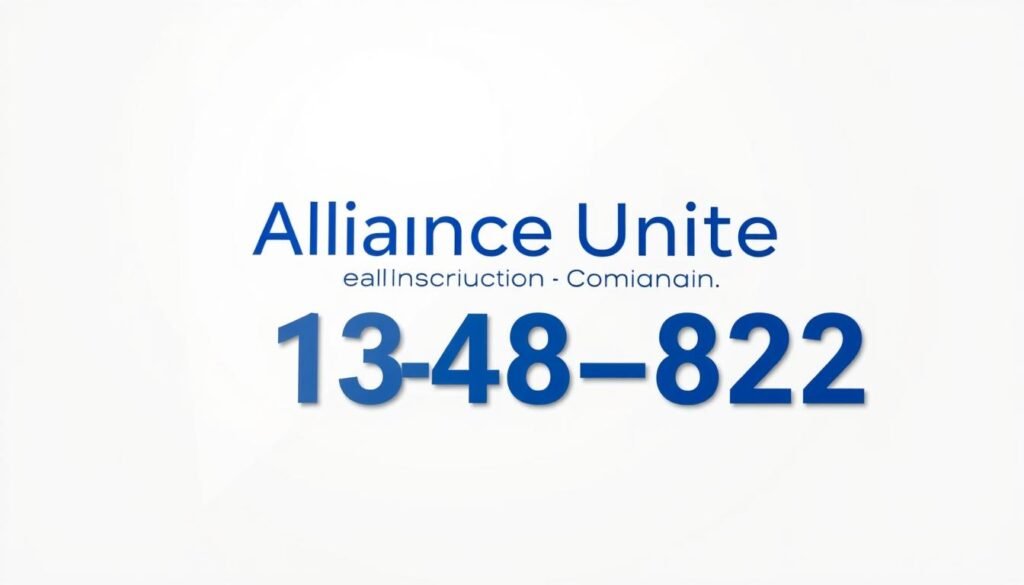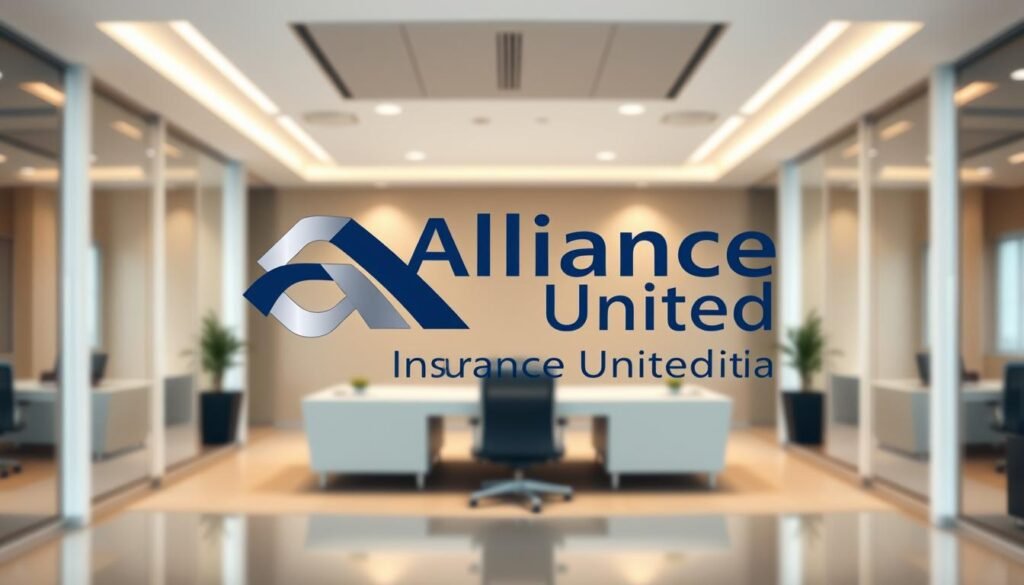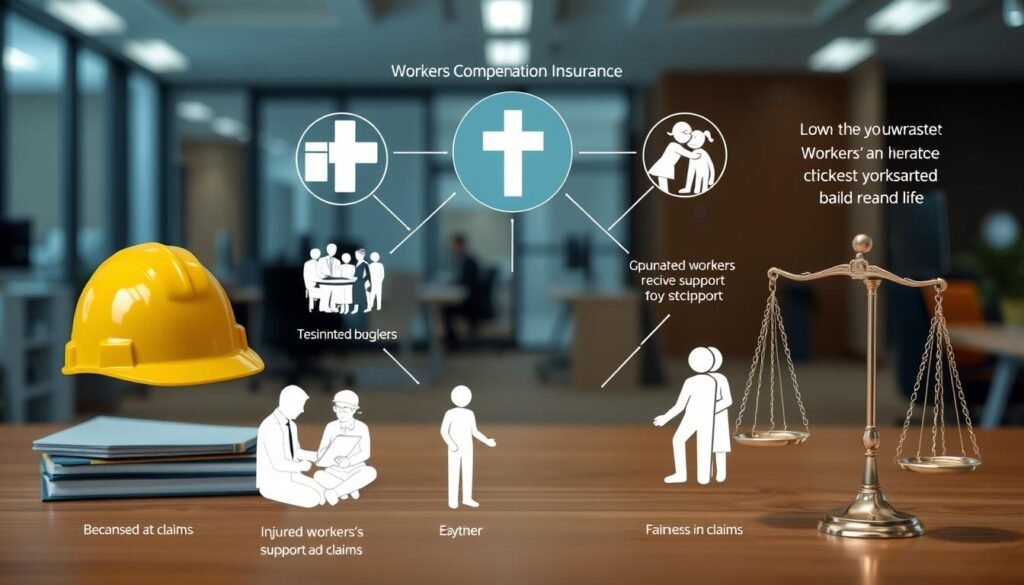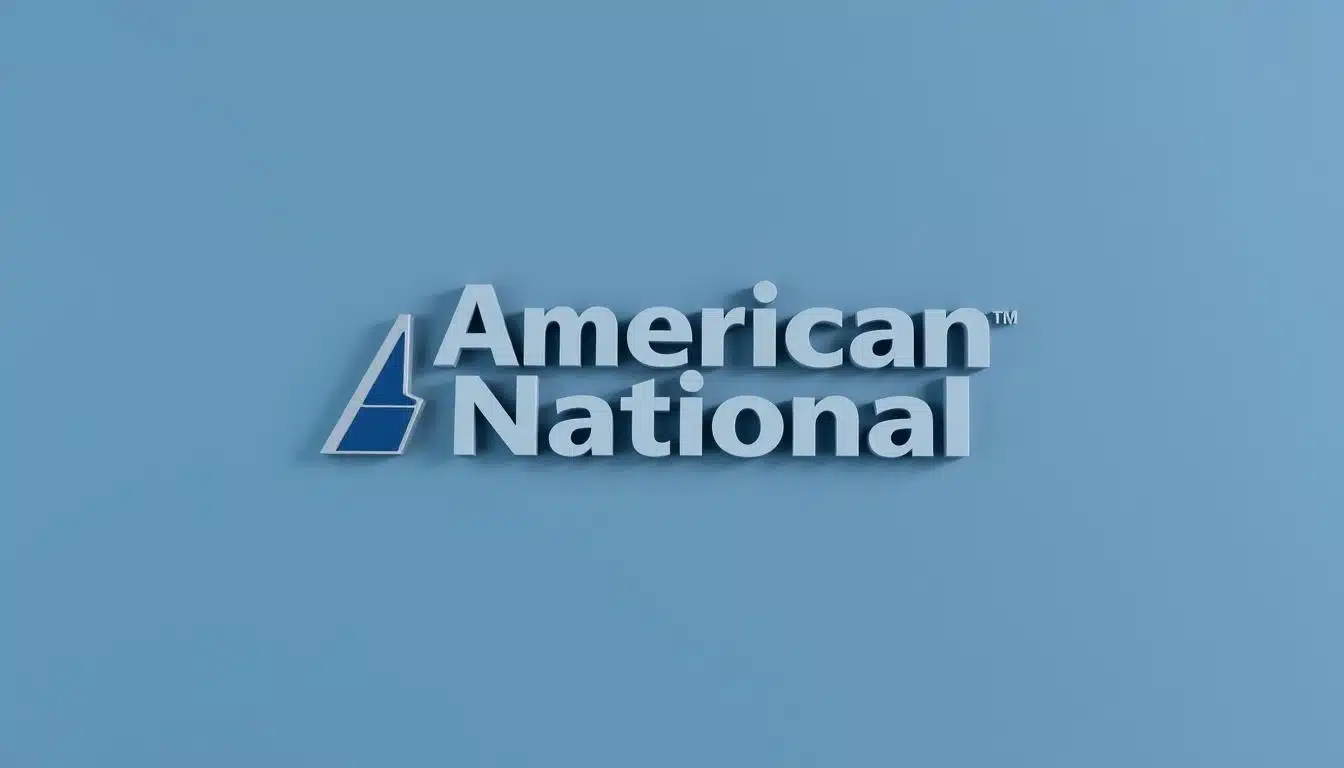It is important for us to choose the right insurance entity. For many in California, the right choice can make a big difference. This review looks at how Alliance United Insurance handles non-standard and high-risk auto markets.
It also explores what their policies include and how they fit into the Kemper family after recent changes.
Alliance United Insurance focuses on basic liability coverage and roadside assistance. They also handle SR-22 filings for drivers with limited options. Reviews often praise their simple products and competitive prices for those on a budget.
But, they warn that full coverage choices are limited compared to bigger carriers.
We’ll share important details like company address and claims phone numbers. We’ll also explain how claims support works and the link with Kemper. Plus, we’ll compare them with Infinity Insurance and other rivals.
Read on to see cost comparisons, sample rate ranges, and decide if Alliance United Insurance is right for you.
Table of Contents
ToggleKey Notes;
- Alliance United specializes in non-standard auto coverage for high-risk drivers in California.
- Policies are simple and often cheaper for minimum liability, but full-coverage options are limited.
- Alliance now operates under Kemper; verify who services your policy and where to call for claims.
- Compare alliance insurance company quotes with Infinity Insurance, Progressive, and Nationwide before buying.
- Confirm claims phone numbers and company address early in the shopping process to avoid surprises.
Overview of Alliance United Insurance Company
Alliance United is a non-standard auto carrier mainly in California. It helps drivers with higher risks like tickets or DUIs. You can get quotes online or through agents like Blake Insurance Group.
The company is part of the Kemper family. This means how you pay and file claims might change. It’s important to know this if you’re a policyholder.
Markets served are in Southern California. Here, drivers with high risks find it hard to get standard insurance. They look for minimum liability or SR-22 filings.
Alliance United has an A- rating from AM Best. This shows they are financially strong and can meet their promises. But, rates and service are also key when choosing insurance.
Drivers with recent tickets or SR-22 needs might find Alliance United good. It offers simple, affordable plans. It’s great for those who need basic coverage fast.
But, it’s not for everyone. If you need insurance everywhere or full coverage without extra costs, look elsewhere. A bigger carrier might be better for you.
Types of Coverage Offered and Policy Options
Alliance United offers many auto insurance options. They have basic coverages for legal needs and budgets. You get standard liability for injuries and damage to others’ property.
For more protection, you can add collision and comp. These options are available based on your risk and state laws.
Auto insurance core coverages
Liability coverage meets state minimums in California and others. It protects others and their property if you’re at fault. Collision and comp cover damage from accidents and other losses like theft.
Medical payments and uninsured/underinsured motorist coverage are also available. They’re part of full packages.
Full coverage vs. minimum coverage
Minimum coverage is for those who just need to meet state laws. It’s cheaper but leaves you to pay for repairs and other losses. Full coverage adds collision, comp, medical payments, and uninsured motorist protection.
Full coverage costs more, often a lot for high-risk drivers. Rates for Alliance United vary a lot, from $70 to over $2,300 a year.
Supplemental and optional add-ons
Optional benefits fill gaps in standard plans. Roadside assistance helps with breakdowns and towing. Rental reimbursement covers car rental costs while yours is fixed.
Discounts for bundling, safety features, and multiple drivers can lower costs. Adding extras like roadside or rental reimbursement increases your premium. Get detailed quotes to see if the benefits are worth the extra cost.
Alliance United Auto Insurance: Rates, Discounts, and Fees
Rates at Alliance United change a lot based on who you are, what you need, and where you live. One study found an average of about $70 a month, or $840 a year. But, for drivers with more risks, costs can go over $2,300 a year. Getting insurance quotes can show how different factors affect these numbers.
For drivers with higher risks, Alliance United is often between GEICO and other non-standard insurers. Looking at sample rates can help see if the policy is right for your budget and risk level.
Typical rates and how they compare
Costs vary based on age, driving record, car, and zip code. A $70 monthly rate can be good for high-risk drivers. But, full-coverage policies for those with more risks can cost over $2,300 a year.
Getting quotes from different places helps. What seems expensive for one driver might be okay for another, considering discounts and past claims.
Available discounts
Alliance United has many discounts to lower your costs. These include Good Driver, Safe Driver, and Safety Features discounts. There are also discounts for having more than one policy, paying in full, and being a mature driver.
Eligibility for these discounts depends on your driving record, car safety features, and how you pay. Ask about discounts when you get insurance quotes.
Fees and payment plan considerations
Payment plan fees can add to your yearly cost. Alliance United might charge for different payment options. Paying in full or setting up automatic payments can save you money.
Canceling your policy usually means you get back any money you paid without a fee. When switching, give your new policy details to avoid gaps and make the process smoother with alliance insurance customer service.
| Item | Typical Amount | Impact on Cost |
|---|---|---|
| Average liability-only monthly | $52–$70 | Moderate; depends on driving history |
| Average full-coverage annual | $1,800–$2,400 | High for non-standard drivers |
| Common discounts | Good Driver, Multi-Policy, Paid-in-Full | Can reduce premiums by 10–25% |
| Payment plan fees | $0–$15 per installment | Raises effective annual price |
| Cancellation fee | No fee reported | Refunds returned; avoid gaps by supplying new policy details |
Reviews of Alliance Insurance vary. Use this feedback and talk directly to their customer service when comparing quotes. Choose based on discounts and fees that fit your driving style.
Claims Experience, Customer Service, and Online Tools

Alliance United policyholders have many ways to file a claim and track it. After joining with Kemper, they can file online and check claim status on the company’s website. They can also use the alliance united insurance login portal to view documents, make payments, and check on open items without waiting on hold.
Claims process and accessibility
Report a claim online through the Kemper or Alliance portal for a quick start. Call the claims phone number if you need a live agent or immediate help. This mix of online tools and phone access is great for both small and big accidents.
Customer service reputation and reviews
Reviews of alliance insurance customer service are mixed. Some customers like the affordable rates for high-risk drivers and help with SR-22 filings. But others say they get slow responses and delayed settlements after filing a claim.
Legal issues in the past have led to some disputed claims being paid. This history is found in consumer reports and state complaint records. These documents show that resolving claims can take days or weeks in many cases.
Claims phone numbers and contact channels
After the merger, many point to Kemper for alliance united insurance company claims. Make sure to have the current claims phone number:800-508-5833 and customer-service line ready. Check your policy paperwork or the insurer’s website for this information.
Brokers and independent agencies, including local providers, offer quick online quotes. They can help start a claim or direct calls to the right person. Use brokers if you want one person to handle all the paperwork and follow-ups.
Comparing Alliance United Insurance to Competitors
This comparison looks at product mix, how they handle high-risk drivers, digital tools, and pricing. It helps when reading alliance insurance reviews or looking for new coverage.
Infinity Insurance Company
Infinity and Alliance United offer both standard and non-standard auto policies in places like California. Rates vary based on the driver. Infinity might have more optional coverages and discounts.
Alliance United is better for SR-22 filings and drivers with issues. Infinity focuses on online quotes and policy customization. Drivers with recent issues might find better deals with Alliance United.
Kemper Corporation
Alliance United now uses Kemper Corporation systems for managing policies. Kemper offers bigger claims support and more agents.
Policy services and online portals use Kemper tech. This change helps with growth and product reach. Buyers should think if these changes are more important than customer satisfaction in alliance insurance reviews.
GEICO, Progressive, Nationwide
GEICO and Progressive often have lower quotes for standard drivers. They have great mobile apps and many discounts for safe drivers.
Nationwide is available everywhere and offers discounts for bundling. But, GEICO and Nationwide are stricter for high-risk drivers. Alliance United might be more open to these drivers.
| Feature | Alliance United | Infinity Insurance Company | Kemper Corporation | GEICO / Progressive / Nationwide |
|---|---|---|---|---|
| Target drivers | Standard and high-risk; SR-22 focus | Standard and non-standard; wider endorsements | Broad portfolio; agent and direct channels | Primarily standard; strong digital-first options |
| Underwriting for high-risk | More accessible for problem records | Selective; may restrict severe records | Depends on subsidiary brand; flexible options | Often restrictive for high-risk applicants |
| Digital tools | Improving via Kemper integration | Robust online quoting and endorsements | Advanced claims systems and portals | Market-leading apps and telematics options |
| Discounts | Basic discounts; targeted offers | Diverse discount structures | Varies across brands; bundled savings common | Extensive discount programs |
| Best for | High-risk drivers needing SR-22 | Drivers seeking optional endorsements | Customers wanting broad product access | Low-risk drivers seeking low rates and tools |
| Notes from alliance insurance reviews | Access for problem records noted positively | Users cite flexible options and online ease | Scale and backend improvements reported | High satisfaction on digital tools and pricing |
Next step: get live quotes from each company. Compare prices, coverage, and service channels mentioned in alliance insurance reviews.
Pros and Cons of Choosing Alliance United Insurance

Choosing an insurer means knowing its good and bad sides. Here’s a summary of the main points. It shows what’s good, what’s not, and who might not want to choose Alliance United Insurance. This guide helps you use reviews and claims history to make a smart choice.
Key advantages
- They specialize in non-standard and high-risk auto insurance in California. This includes SR-22 filings for drivers needing proof of financial responsibility.
- They offer competitive prices for certain high-risk drivers. This makes them a good choice for those with past violations.
- They have basic digital tools for quoting, filing claims, and checking accounts. This makes it easy to handle routine tasks.
- They offer discounts for good driving, safety features, having multiple policies, and paying in full. These can lower your premiums.
Main drawbacks and limitations
- They might not offer full coverage to all applicants. Some only get liability and roadside assistance.
- Some customers have complained about slow service and disputes. This can delay claim resolutions.
- There have been legal issues over denied claims. This might worry those who follow claims trends.
- They charge extra for payment plans, automatic withdrawals, and certain payment methods. This can make your insurance more expensive.
- They mainly serve California. This limits their appeal for drivers needing coverage in other states.
Who should avoid Alliance United
- Drivers wanting coverage across the country or more options should look at GEICO, Progressive, or Nationwide. They offer more and sometimes lower rates for standard drivers.
- Drivers with clean records might find better deals and service elsewhere. This is based on comparing rates and reviews.
- Those who value quick and effective claims handling might prefer other insurers. This is because Alliance United has had issues with claims.
Compare the pros and cons to see if Alliance United fits your needs. Get quotes, read recent reviews, and check claims data. This will help you find the right coverage for your driving habits and budget.
How to Get Quotes, Enroll, and Manage Your Policy
Getting accurate insurance quotes is easier with online tools. Use them from brokers like Blake Insurance Group or Kemper/Alliance. Just enter your ZIP code, vehicle VIN, and driver history to get a quote.
Comparing quotes is key for high-risk drivers. Use different tools to see how rates vary. This helps you find the best deal.
Enrollment requires a few standard items. You’ll need driver licenses, VIN, coverage limits, and SR-22 paperwork if needed. Make sure your vehicle details are correct to avoid issues later.
There are many ways to pay for your policy. You can pay in full, set up monthly payments, or use electronic withdrawals. Paying in full often saves you money. Check the fee schedule before choosing a payment plan to avoid extra costs.
Manage your policy online. After Kemper’s acquisition, you can log in to see ID cards, policy documents, and claim status. The portal also lets you file claims and make payments.
If you can’t log in, call your broker or Kemper customer service. Keep your login info safe and update your payment info if you change banks or cards.
Quick checklist:
- Collect driver history and VIN before you start a quote.
- Compare multiple insurance quotes for the same coverage level.
- Choose paid-in-full for a likely discount when possible.
- Set up electronic withdrawal to avoid installment fees.
- Use the alliance united insurance login to access policy documents and file claims.
Practical Contact Information and Useful Resources

When you need to reach Alliance United or its successor operations under Kemper, keep a concise set of contacts and documents ready. Use the phone numbers on your policy card for the fastest response. Agents and brokers remain a key channel when you need quotes or help with claims.
Company contact details and claims phone numbers
Find the Alliance United Insurance Company phone number and claims phone number on your insurance ID card or policy declarations page. The company address and corporate contacts appear on official correspondence and on your agent’s paperwork. For emergency claims, dial the claims phone number shown on your card first.
How to reach customer service and escalate issues
Primary pathways to reach alliance insurance customer service include the online claim portal, customer-service phone lines, and your issuing agent. Keep claim numbers, email threads, and dates handy when you call.
If customer-service channels stall, escalate to Kemper corporate customer relations. Contact your state insurance regulator to file a complaint if needed. In California, you may contact the California Department of Insurance for guidance and formal review.
Where to find official documents and policy forms
Access policy forms, declarations, endorsements, and proof-of-insurance ID cards through the Alliance/Kemper login or from your agent. Request printed copies of policy forms from the issuing agent if you need signed originals for legal or lender purposes.
| Item | Where to find it | Tip |
|---|---|---|
| Alliance United Insurance Company phone number | Policy declarations; insurance ID card; agent paperwork | Save the number in your phone and photograph the ID card for quick access |
| Claims phone number | Front of insurance card; online claim portal; agent contact | Call the claims phone number on the card for fastest emergency handling |
| Company address | Mailing address on policy documents; corporate header on letters | Use the company address from your most recent policy to ensure correct service of documents |
| Alliance insurance customer service | Online portal; customer-service phone line; agent support | Document every interaction with date, time, and representative name |
| Policy forms | Online account portal; agent; mailed packet on request | Store digital copies and request certified copies for disputes |
Tips for Choosing the Right Auto Insurance and Alternatives
Finding the right policy is easy with a clear plan. First, list what you need like state minimums and SR-22. Think about how much money you can spend on insurance.
Consider your car’s value and insurance needs. Newer cars might need full coverage. Older cars might just need liability insurance.
How to evaluate needs as a high-risk driver
First, check if you meet legal requirements. In California, you need to follow liability minimums and file SR-22 if needed. Also, think about adding medical payments and uninsured motorist coverage if you want more protection.
Choose a deductible that fits your savings. A higher deductible saves money but means you pay more after an accident. Compare collision and comp coverage to how much your car is worth.
Shopping strategy and comparing insurance quotes
When shopping, compare the same things from different companies. Ask for the same coverage, deductibles, and endorsements from Alliance United, Infinity, GEICO, Progressive, Nationwide, and others.
Work with independent brokers like Blake Insurance Group to get offers from many places at once. When comparing quotes, look at more than just the price. Check fees, cancellation rules, and how they handle claims.
Read car insurance reviews to find out about any issues with claims or service. This helps you avoid problems later.
Alternatives and additional resources
If standard insurance is too expensive, look for other options. Companies like Infinity Insurance, GEICO, Progressive, Nationwide, and non-standard insurers might offer better deals.
Independent agents can find special deals not listed online. Check AM Best ratings for financial strength and the California Department of Insurance for complaints and rules.
Use online reviews and state complaint data to see how companies treat customers. If you use your car for work, make sure your business insurance covers it.
Conclusion
Alliance United Insurance Company is great for drivers in California who are hard to insure. Now part of Kemper, they offer basic liability and SR-22 filings. They also have extras like roadside help and car rental payback.
They have an A- rating from AM Best and focus on high-risk drivers. But, some reviews say their claims service is slow. They also charge extra for some payment plans.
What to do next? Get quotes from different insurers and compare them. Look at what’s covered, fees, and SR-22 options. Make sure you have the right phone numbers for claims. Keep records if you need to make a claim. If service is bad, write it down and talk to the California Department of Insurance.








